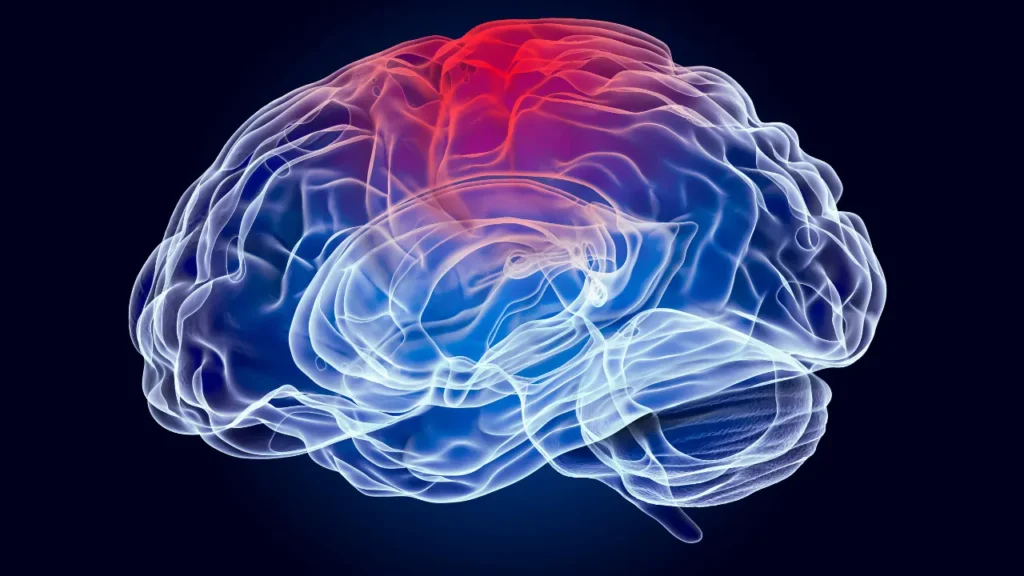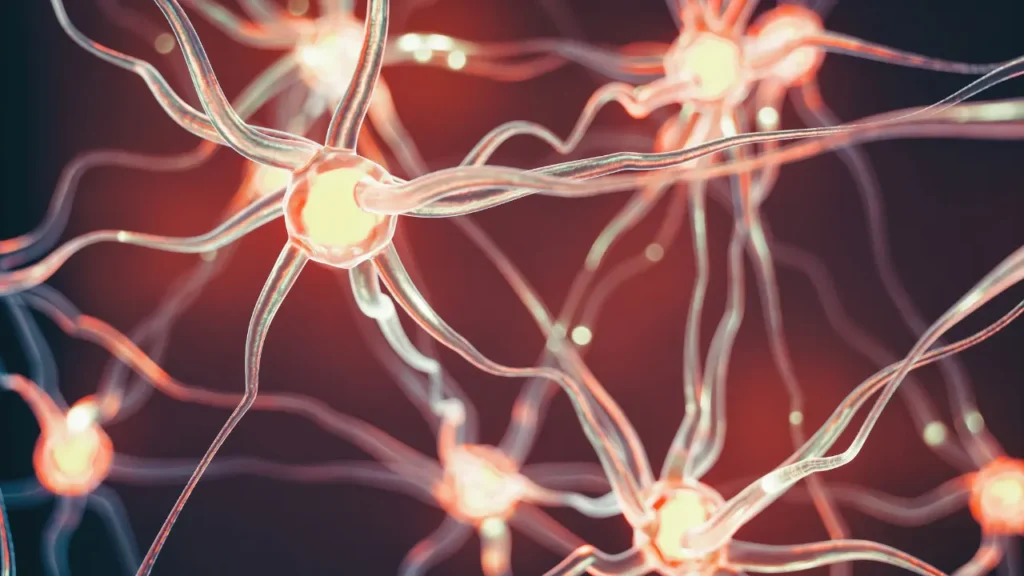The flowering plant skullcap, which is a member of the genus Scutellaria, is well known for its medicinal uses in both conventional and contemporary herbal medicine. The main focus of research on the nootropic properties of Scutellaria lateriflora, or American skullcap, has been on improving alertness, focus, and cognitive function. This in-depth analysis explores the many facets of skullcap, including its composition, health advantages, recommended dosage, adverse effects, possible drug interactions, and recommendations for responsible use. With a focus on the chemical components and physiological mechanisms that underlie its effects on the body and brain, this page attempts to give readers interested in using skullcap as a nootropic supplement a comprehensive academic overview.
You May Also Like:
Battle of the Brain Boosters: Brain MD Omega 3 Power vs. Kori Krill Oil Mind & Body
Water Fennel: Benefits, Dosage, Side Effects, Drug Interactions, And Other Important Information
Skullcap: Benefits, Dosage, Side Effects, Drug Interactions, and Other Important Information is an original (NootropicsPlanet) article.
Nature of Skullcap
Scutellaria, the official name for skullcap, is a genus of flowering plants in the Lamiaceae mint family that includes a number of species, notably the Scutellaria lateriflora that is the subject of much research. This perennial herb, which gets its name from its helmet- or skullcap-shaped calyx, has unusual blue to purple flowers.
It is native to North America. Skullcap prefers rich, moist soils, and it grows well in lush forests and meadows. Due to its many health-promoting qualities, the plant was first used in Native American traditional herbal medicine and then spread to European herbal practices.
Health Benefits of Skullcap
Skullcap’s health benefits are vast and primarily attributed to its rich content of bioactive compounds, particularly flavonoids such as baicalin, baicalein, and wogonin. These compounds confer antioxidant, anti-inflammatory, neuroprotective, and anxiolytic effects, making skullcap a valuable herb in both traditional and contemporary herbal medicine. Detailed exploration of its health benefits reveals:
- Anxiety and Stress Reduction: Skullcap exhibits notable anxiolytic effects, largely due to its action on the GABAergic system, enhancing the inhibitory action of GABA neurotransmitters, which helps in reducing anxiety levels and promoting a sense of calm.
- Cognitive Enhancement: By modulating neurotransmitter activity, particularly through GABA receptors, skullcap may help in improving cognitive functions such as attention, memory, and focus. The anti-inflammatory and antioxidative properties of skullcap also contribute to its neuroprotective effects, potentially mitigating cognitive decline.
- Sleep Improvement: The sedative qualities of skullcap make it beneficial for those suffering from insomnia or sleep disturbances. Its ability to induce relaxation supports better sleep quality and duration.
- Gingivitis Relief: The anti-inflammatory effects can significantly reduce gum inflammation, a key symptom of gingivitis, while its antioxidative compounds help neutralize harmful free radicals, potentially preventing the oxidative stress linked to gum disease.
- Antioxidant and Anti-inflammatory Effects: Skullcap’s flavonoids provide strong antioxidant and anti-inflammatory benefits, protecting cells from oxidative stress and reducing inflammation. This is crucial not only for cognitive health but also for overall well-being, as oxidative stress and inflammation are linked to numerous chronic diseases.
- Neuroprotective Properties: The antioxidative and anti-inflammatory actions of skullcap contribute to its neuroprotective benefits, safeguarding neuronal health and function. This is particularly relevant in the context of aging and neurodegenerative diseases.
- Support for Mood Disorders: Preliminary research suggests that skullcap might offer support for mood disorders, including depression, through its impact on neurotransmitter systems and neuroinflammation pathways.

Chemistry of Skullcap
Skullcap, specifically Scutellaria lateriflora, is rich in a variety of bioactive compounds that contribute to its pharmacological activities. The chemistry of skullcap is predominantly characterized by its flavonoid content, including baicalin, baicalein, wogonin, and oroxylin A. These flavonoids are responsible for the plant’s therapeutic effects, and their chemical structures play a critical role in their biological activity.
- Baicalin is a flavone glycoside, a type of flavonoid consisting of the aglycone baicalein linked to a glucose molecule. This compound is known for its ability to modulate GABA receptors, exert anti-inflammatory effects, and provide neuroprotective actions.
- Baicalein is the aglycone form of baicalin, characterized by three phenolic hydroxyl groups, which contribute to its antioxidant activity. Baicalein can cross the blood-brain barrier, impacting CNS activity directly.
- Wogonin and oroxylin are also flavonoids with similar phenolic structures, allowing them to serve as antioxidants. These compounds differ slightly in their hydroxyl and methoxy group arrangements, influencing their solubility and bioavailability, as well as their specific interactions with neuronal receptors and enzymes.
These flavonoids interact synergistically to modulate physiological pathways, contributing to skullcap’s nootropic and anxiolytic effects. Their chemical properties, such as lipophilicity, influence their ability to cross the blood-brain barrier and exert effects within the central nervous system.
Physiological Mechanism of Action of Skullcap
The physiological mechanisms of action of skullcap’s bioactive compounds involve multiple pathways, primarily focusing on modulation of neurotransmitter systems, anti-inflammatory actions, and antioxidant effects.
Neurotransmitter Modulation: Baicalin and baicalein directly interact with GABA_A receptors as agonists, enhancing the inhibitory effects of GABA in the brain. This action increases neuronal inhibition, which can lead to anxiolytic and sedative effects. By dampening overactivity in the CNS, these compounds help improve focus and reduce anxiety, indirectly supporting cognitive functions.
Anti-inflammatory Effects: Chronic inflammation is implicated in the pathogenesis of various neurodegenerative diseases and cognitive decline. The flavonoids in skullcap exhibit potent anti-inflammatory properties by inhibiting key inflammatory pathways and cytokines, such as NF-kB and TNF-α. This not only helps protect neurons from inflammatory damage but also supports overall brain health and cognitive function.
Antioxidant Activity: Oxidative stress is a critical factor in aging and neurodegeneration. Skullcap’s flavonoids, particularly baicalein and wogonin, act as antioxidants, scavenging free radicals and reducing oxidative damage to neurons. This protection of neural cells contributes to maintaining cognitive abilities and preventing degenerative brain conditions.
Through these mechanisms, the skullcap influences the central nervous system in a way that supports enhanced alertness, focus, and cognition, while also offering protective effects against neural damage and inflammation.

Optimal Dosage of Skullcap
The absence of standardized extracts and the variation in individual reactions make it difficult to determine the best dosage of skullcap for improving cognitive function. The advice of herbalists and clinical research, however, can offer direction.
Usual dosages for American skullcap are 1 to 2 grams of dry herb in tea form or 300 to 600 mg of standardized extract, up to three times a day. The lower end of the dosage range should always be used first, and adjustments should be made based on individual response and tolerance.
Side Effects of Skullcap
When taken in accordance with approved dosages, skullcap is usually regarded as safe. However, a small number of people may have moderate side effects such as sleepiness, upset stomach, or allergic responses. The herb’s sedative qualities make it necessary to exercise caution when using machinery or doing jobs that call for acute mental awareness.
Potential Substance Interactions of Skullcap
Skullcap’s GABAergic activity raises the possibility of interactions with medications that alter neurotransmitter systems, like barbiturates, benzodiazepines, and other sedatives. The effects of these drugs may be amplified by concurrent use, raising the possibility of sedation and respiratory depression. It is best to speak with a doctor before taking skullcap along with any other drugs or CNS depressants.

Best Responsible Use of Skullcap
To harness skullcap’s nootropic benefits responsibly, adhere to the following recommendations:
- Start with the lowest effective dose and monitor your response.
- Avoid long-term continuous use; instead, consider intermittent usage patterns to prevent tolerance build-up.
- Be aware of potential interactions with medications and other supplements.
- Purchase skullcap from reputable sources to ensure product quality and safety.
- Consult healthcare professionals, especially if you have pre-existing conditions or are taking other medications.
Skullcap:
Conclusion
Skullcap, a plant with a long history in herbal medicine, continues to be a topic of interest for its potential cognitive and health benefits. Its rich composition of flavonoids offers promising anti-inflammatory, neuroprotective, and anxiolytic effects, making it a valuable supplement for enhancing cognitive function and overall well-being.
While its use appears safe within recommended dosages, awareness of potential side effects and interactions is crucial for responsible utilization. Ultimately, as research advances, skullcap’s role in supporting cognitive health and mitigating stress underscores its significance in contemporary herbal practices, demonstrating the enduring value of traditional remedies in modern health care.

References:
- Skullcap: Benefits, Side Effects, and Dosage. Retrieved from: https://www.healthline.com/nutrition/skullcap
- Skullcap – Uses, Side Effects, and More. Retrieved from: https://www.webmd.com/vitamins/ai/ingredientmono-986/skullcap
- Skullcap: Everything You Need to Know. Retrieved from: https://www.verywellhealth.com/the-health-benefits-of-skullcap-89584
Important Note: The information contained in this article is for general informational purposes only, and should not be construed as health or medical advice, nor is it intended to diagnose, prevent, treat, or cure any disease or health condition. Before embarking on any diet, fitness regimen, or program of nutritional supplementation, it is advisable to consult your healthcare professional in order to determine its safety and probable efficacy in terms of your individual state of health.
Regarding Nutritional Supplements Or Other Non-Prescription Health Products: If any nutritional supplements or other non-prescription health products are mentioned in the foregoing article, any claims or statements made about them have not been evaluated by the U.S. Food and Drug Administration, and such nutritional supplements or other health products are not intended to diagnose, treat, cure, or prevent any disease.


